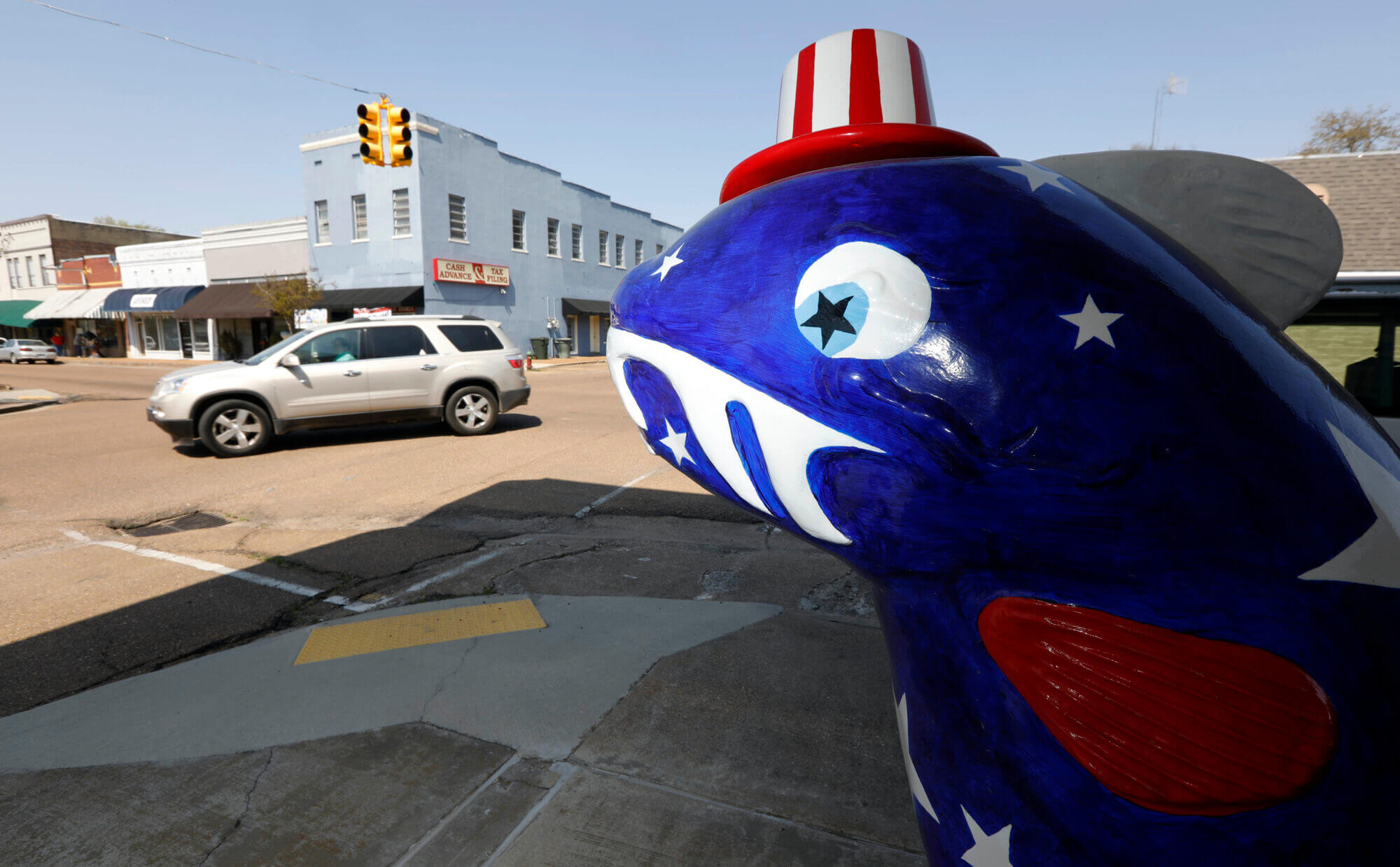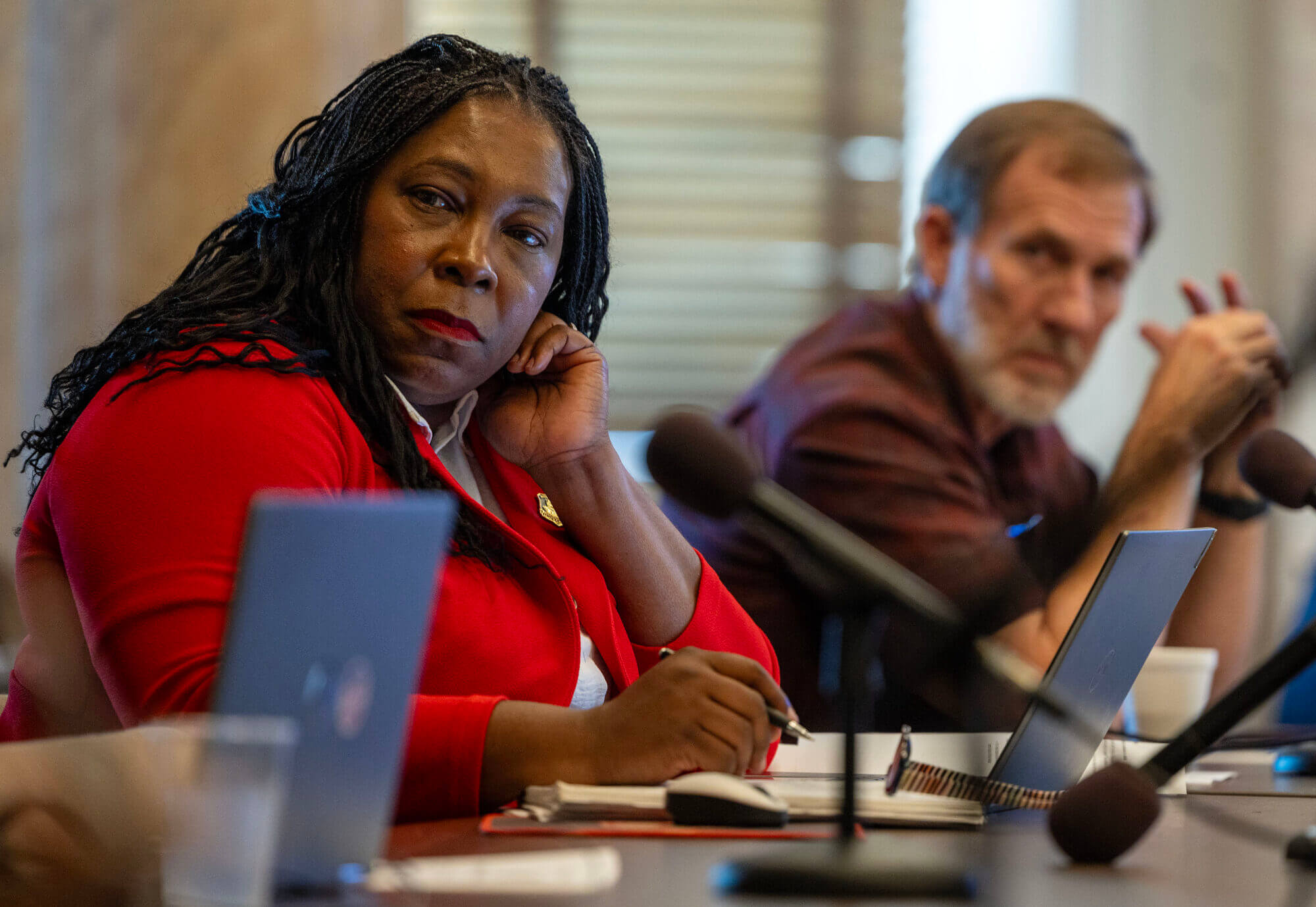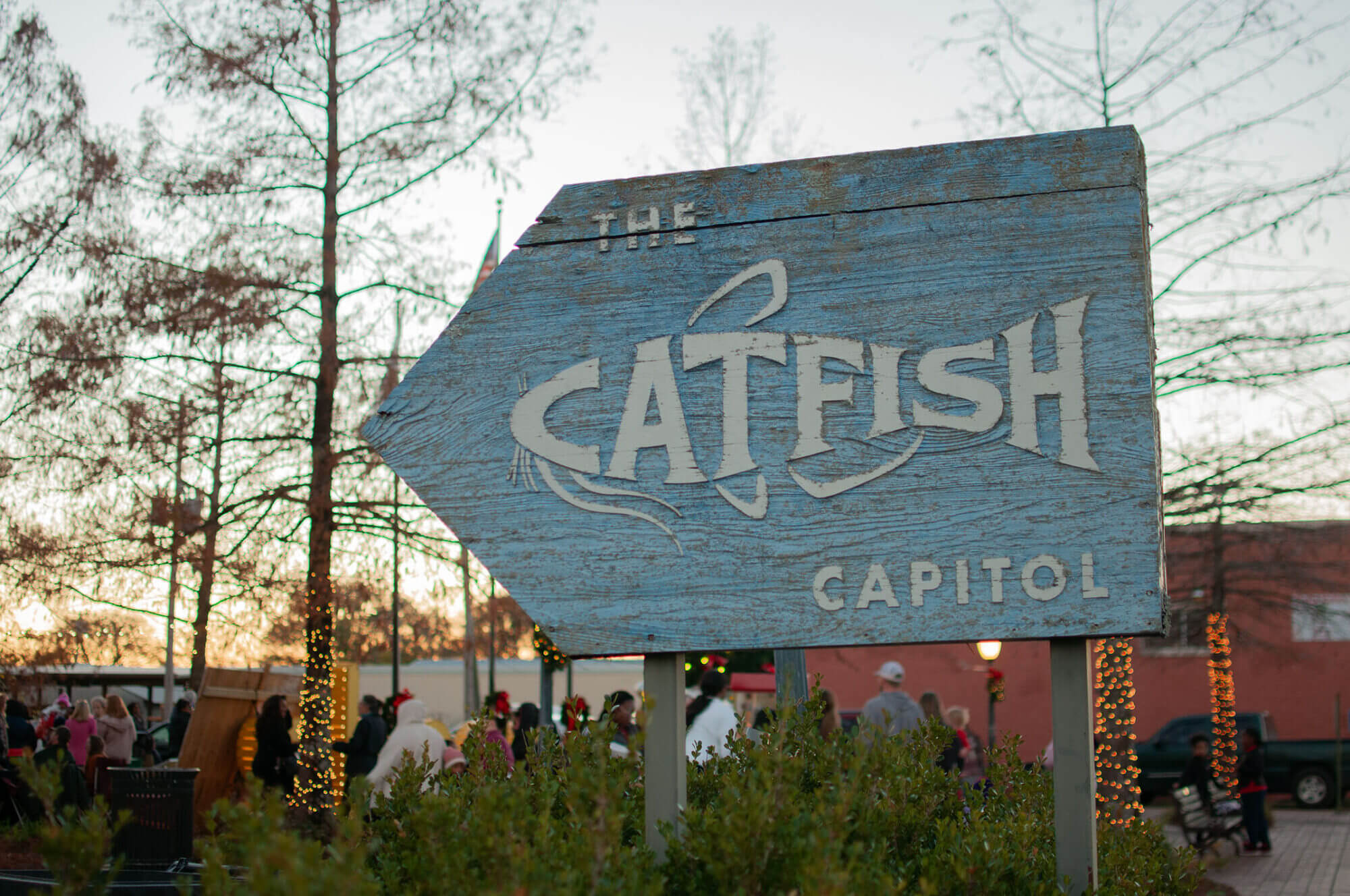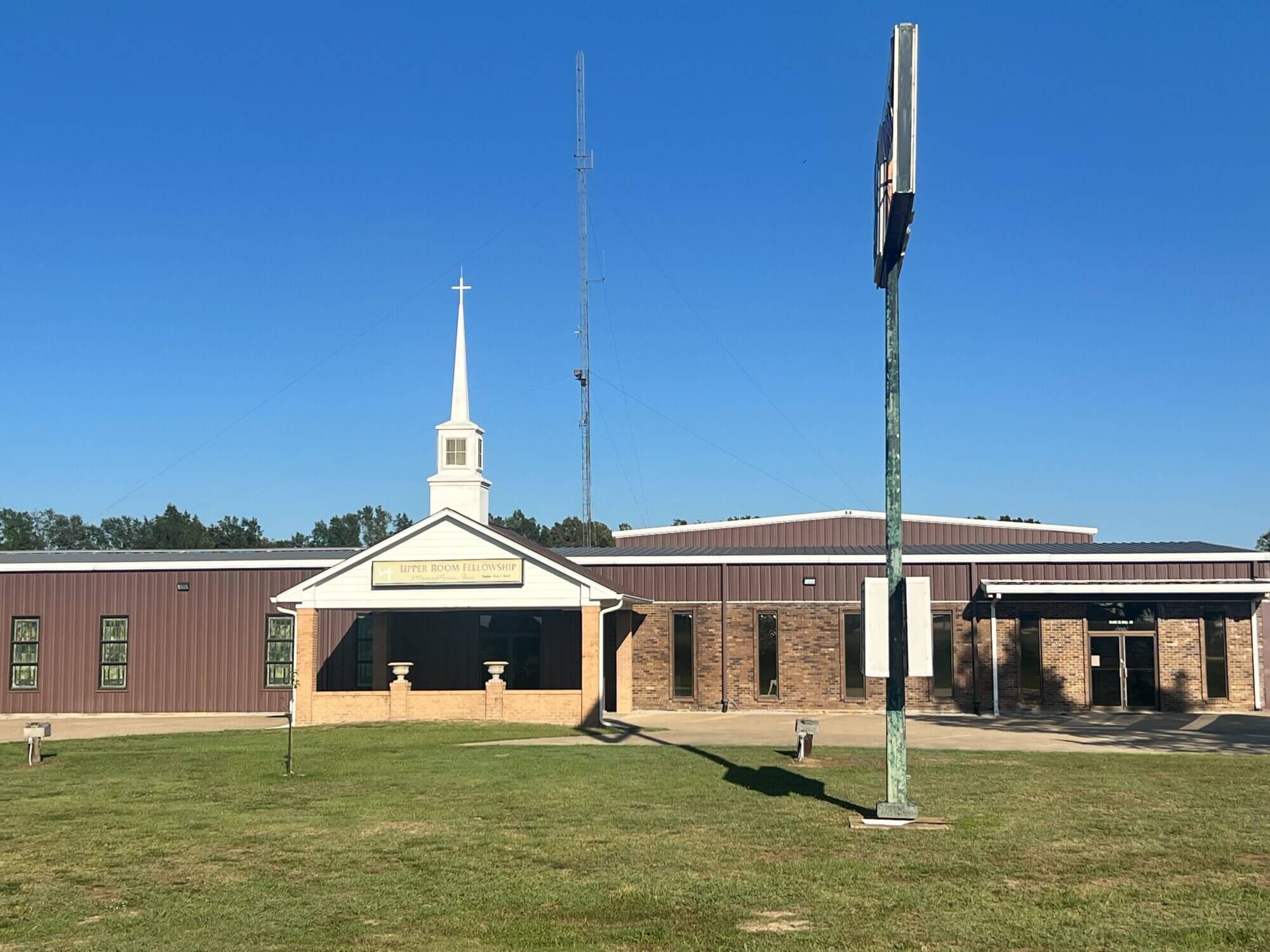

BELZONI – When Archway Charter School was first proposed, it was described as providing “bridges to a brighter future.” It was later referred to as a “reprieve” from a slew of failing school districts in the Mississippi Delta. Archway students would engage with ancient texts in virtual reality and be immersed in a classical education that only students in more affluent zip codes could normally access.
The school was described as an opportunity for Belzoni, a community of 1,700 residents in Humphreys County in one of the poorest, most rural and least tech-accessible parts of the state.
Regulators, evaluators and others ask: Can a virtual school succeed there?
The county, where over a fifth of the residents live below the poverty level, ranks 61st in broadband access out of Mississippi’s 82 counties, according to research from Mississippi State University.
Belzoni – pronounced bel-ZONE-ah by locals – rises from fields of soybean, corn and cotton, more than an hour’s drive northwest of Jackson.
The town first appears in gas station signs and a tall neon one off Highway 49 inviting travelers into “the heart of the Delta.” Ponds beside dirt and paved roads still produce the town’s famous commodity. Belzoni has called itself the “Catfish capital of the world” since 1976.
Plans for Archway Charter School were first announced in spring 2024, with an initial proposal for grades seven to 12. However, the school has struggled to raise start-up funds since gaining state approval. Financial disclosures have also spelled recent trouble for the company contracted to provide the virtual learning component.
These facts, including lack of internet access, concerned the state’s third-party evaluator when Archway first sought approval of its charter in October 2024
“I have seen a hybrid model that worked, but not in rural areas where there’s a high rate of poverty and families that may not have access to equipment or resources to be successful,” said Wanda Giulliaume, one of three independent evaluators who issued a recommendation to the board.
Archway Founder David Herndon responded by saying Archway would pay for internet access for students who need it, by potentially “diverting some funds” to get families access to quality internet. School officials would collect that information along with enrollment applications.
He said he is confident students will be able to connect to the internet after conversations with Southeast Cable and other broadband providers.
But access issues still worry Mississippi Department of Education administrators and local legislators.
Kym Wiggins, chief operating officer for the state Department of Education, expressed concerns after consulting surveys from districts about students’ access to equipment and broadband.
“There is an access issue,” Wiggins said. “So what do students do when they don’t have access? They do nothing. And they are going to a McDonald’s in a gas station. That’s not a viable option.”

Tiny communities such as Midnight, Louise and Putnam as well as homes along Highway 12 and Highway 7 lack adequate broadband access, said Rep. Timaka James-Jones, a Democrat from Belzoni.
By the end of the September 2024 Mississippi Charter School Authorizer Board meeting, Archway had an approved charter with stipulations before it could open, such as proof of start-up funds.
Once it opens, Archway Charter School is expected to draw $488,817 from Humphreys County School District in the first year to cover some of the $1.4 million in operating costs.
Without a Charter School Program fund and only assumed sources of revenue on its most recently listed budget, Archway has not demonstrated how it will recruit high-quality teachers and finance its operation. Even before the school has opened, Herndon has asked the authorizer board to let Archway expand down to sixth grade.
“As of today, the school does not have any funds available for operations,” board executive director Lisa Karmacharya wrote in an email Thursday to Mississippi Today. “The school will be required to submit an amended/updated budget to the authorizer (board) in December.”
Now Entering the Delta-verse
On a Friday afternoon in Belzoni, locals congregated on porches, pulled grills and invited friends to shuttered gas stations, leaning up against long-emptied gas pumps with plate lunches and cold beer. One street has shacks with wooden boards for windows and black plastic fluttering under loose roof shingles. Another has a junior high school that can only be glimpsed from behind a chain link fence. Restaurants where families would toast new graduates and fill up on grub in between football games are now vacant with yellowed, sunbeaten signs of the meals they once served. The town’s youngest residents still board yellow buses – and on Friday nights in the fall, locals still root for the Humphreys County Cowboys.
For Herndon, the Delta, and particularly Humphreys County, seemed fertile ground for a hybrid school.
In the application to the Mississippi Charter Authorizer Board, Archway identified 14 Delta districts within a 1.5-hour drive of the future charter with “failing” middle schools. Mississippi law restricts charter schools to districts that earn a D or F on the state accountability system. Humphreys County School District has a D, but nine of the 14 Herndon listed are rated C.
“The vast majority of parents with rising sixth-graders in this district are forced to send their children from successful elementary schools to the district’s only middle school that is failing,” Herndon, the charter school’s executive director, told the board.

While nearly every Delta public school district sees a drop in test scores in middle school, the same phenomenon is true in school districts across the state, including in DeSoto County, Pearl and Pearl River County, among other districts that are labeled A or B in accountability ratings. Nearly a third of Delta region elementary schools received a D or F.
The plan is for Archway to be a hybrid school where each month, students log into virtual learning for 18 days and meet in person for two days for culture building and assessments. On virtual learning days, students will have live classes in the morning and self-paced coursework in the afternoon. On Fridays, students will complete self-paced online coursework all day.
Classes conducted in virtual reality will slowly be introduced to the curriculum as the school grows, Archway’s approved charter application says. The district plans to purchase VR headsets for students and staff.
Virtual charter schools have become more popular since the waning days of the COVID-19 pandemic, with many promising better outcomes for students on a more flexible schedule.
However, research from Stanford University found that online charter students saw less academic growth than their peers in traditional public schools, growing 58 fewer days in reading and 124 fewer in math per year.
Most of the elective courses are also contracted out to an online learning software called Edgenuity, which was investigated by the Los Angeles United School District’s inspector general for poor results for students. Hundreds of Plano, Texas, families pulled their kids from an online school that made use of the software because of its poor quality of instruction. A 2020 Mississippi Today story highlighted concerns by students and parents who couldn’t reach a teacher for help during online courses.
The Florida Connection
Herndon said he based his recent failed proposal to expand to sixth grade partly on recent analysis provided by OptimaEd, the Florida-based company contracted to provide the online education component of the Archway curriculum.
OptimaEd provides “virtual reality educational experiences” to schools primarily in Florida.
In one example of virtual learning posted to the company’s account on X, the social media site formerly known as Twitter, Latin students at The Walker School in Florida walk in avatar form across a digital rendering of a Roman villa. In another post, students at another Florida school virtually traipse across the ocean floor to learn about biodiversity.
OptimaEd’s founder is Erika Donalds, a school choice advocate and the wife of U.S. Rep. Byron Donalds, a Florida Republican.
Adam Mangana, the company’s new CEO replacing Donalds, lives in Mississippi, according to Archway’s application. For the last four years, he’s held executive positions at the Naples, Florida-based company he helped co-found.
Mangana previously founded Midtown Public Charter School in Jackson, led a virtual reality lab at Jackson Prep in Flowood, and served as dean of students at St. Andrew’s School in Ridgeland and headed the Christian-centered St. Benedict School.
Midtown Public Charter School has noticeably only received Ds or Fs in the state accountability rating since the 2017-2018 school year.
The application also mentioned that several other company employees were Mississippians whose “proximity” allowed for “a truly unique partnership to Archway as it opens and grows.”
A Florida Bulldog investigation documented the recent financial struggles of the education technology firm. While a previous year’s disclosure listed the company’s value between $1 million and $5 million, the company is now valued between $500,000 and $1 million. This coincides with it losing contracts with three Florida charter schools because of accounting errors.
For third-party evaluators, the “classical inspired” education offered by OptimaEd also didn’t clearly align with standards set by the Mississippi Department of Education.
“There is no evidence to support the effectiveness of classical education principles combined with the proposed curriculum,” wrote the third-party evaluators in their final recommendation.
Herndon is the former headmaster of Saint Augustine School, “a classical Christian school” in Ridgeland.
Matthew Metcalf, the Archway school board president, serves as director of business and financial services for an Idaho-based company that helps found “classical Christian schools” across the country, according to his LinkedIn page. He also formerly led “classical academies” in both Alaska and Minnesota.
Classical Christian schools are private schools with curriculums informed by great works of Western literature and philosophy as well as the Bible.
The hub-bub about the hub
Herndon plans to establish an in-person hub whereby students can go to join online classes should they be unable to connect to the internet.
At the most recent board meeting in September, board chair Marcy Scoggins said it would defeat the purpose of a virtual school to depend on an in-person hub.

The hub would be at Archway’s physical address at Upper Room Fellowship Ministries, off U.S. 49 in Belzoni. Third-party evaluators said Archway overrepresented how much classroom space was available at the hub for students, pitching the idea of setting up classrooms in the gym, fellowship hall and auditorium.
The Boys and Girls Club, which offers after-school programming to school-aged children, occupied the same site up until this past summer. The Humphreys County club expects to have a new location by January.
Despite outlining a goal to enroll 208 Delta students in Archway’s first year, school officials’ applications or compliance check-ins with the board did not include testimony from any local family planning to enroll a child.
“It is not the best avenue for this rural area for our district, for our county,” Rep. James-Jones said. “It will definitely harm our public school system.”
During the last board meeting in September, two members appointed by Republican Gov. Tate Reeves – Tupelo pastor Jay Carney and Laurel attorney Ben Morgan – were the sole votes in favor of expanding the charter to include sixth grade.
“I think a little differently that we have some flexibility on the front end,” Morgan said. “I want us to be problem solvers, not problem creators.”
Archway is slated to open in August with the condition that it provides proof that it met 40% of its enrollment goal and that all enrolled students have internet access and an amended budget that demonstrates financial solvency.
James-Jones said she has not received a coherent plan guaranteeing her constituents would have access to Wi-Fi if they enrolled a student.
“I understand the focus of the school is education,” she said. “But you have to have the resources to do that.”
- Ole Miss QB Trinidad Chambliss’ NCAA appeal is denied, but legal fight over eligibility continues - February 5, 2026
- Visitor brochures are returned to Medgar Evers home - February 5, 2026
- Advocates demand fix for Mississippi’s child care crisis - February 5, 2026